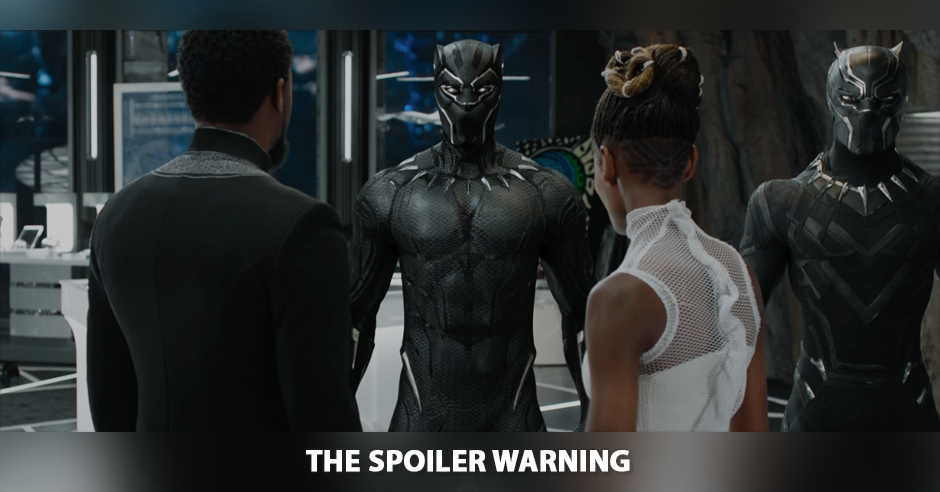Last year I joked that the best film of 2017 was the trailer for Black Panther. And while “best film” might be a stretch, I’d argue that it /did/ speak best to the year’s frustrations. Electric, stylized, and first-pumpingly fresh, it felt less like a Marvel movie than a defiant call to arms. Lay down your tired origin stories, your comfortable fictions of wealthy, chisel-chinned white men incrementally learning selflessness. A new order is coming, and it won’t quote feature a vibrant, model, ethnically diverse cast endquote. It will be black: a film by black people, starring black characters, telling a story wholly unique to the black experience. It will not be whitewashed or timid or remotely apologetic, and it certainly will not be televised.
Black Panther (4/5) delivers on that promise—or, at least, on the aspects that matter. Ryan Coogler’s film is bold, assured, and wholly unfamiliar to the broader MCU. His Wakanda looks nothing like Tony Stark’s industrial Midtown or Doctor Strange’s mystical Village, thank God: a marvel of afrofuturistic production design, it presents a vision of technology which might amplify culture rather than sanitize it, and a new sort of magic you can actually touch. Spears destroy bullet-proof windshields. Metal beads heal fatal wounds. Tribes are still separate, traditions are still sacred, Africa is still African, and a king is still, undeniably, a king. He just happens to be wearing a vibranium suit.
Better still, Coogler finally gives us characters with authentic, traceable motives. Boseman’s T’Challa is much closer to Wonder Woman than any quipping Avenger: he wants to protect his people while also being open to the world, and he struggles to balance those impulses. Michael B. Jordan’s Killmonger is, arguably, the most interesting Marvel “villain” to date: part Hamlet and part Malcolm X, he’s propelled by forces so noble you might (if not for their ruthless application) mistake him for a hero. These are heavy themes they’re wrestling with, and the film never hides that: Wakanda may be fictional, but the society they’re fighting over couldn’t be more real.
In substance and subtext, it’s a total home run. Tonally, though, I couldn’t help but feel mildly disappointed. Not that it was remotely boring—Black Panther is easily among the most entertaining MCU entries to date. But in light of all the bombast promised by the trailer, the resulting film strikes me as somewhat…restrained? Intense but never quite insisting, angry but refusing to outright antagonize. As Creed-like hand-to-hand combat gives way to plastic, CGI wars, it’s hard not to feel the weight of the Marvel machine slowing it down, dragging what should be “incredible” into only “very good.”
Still, very good superhero movies are very, very rare, and ones telling original stories are even more so. This one deserves all the love it will get this weekend. Chris and I review it in this week’s late night, post-screening episode.
